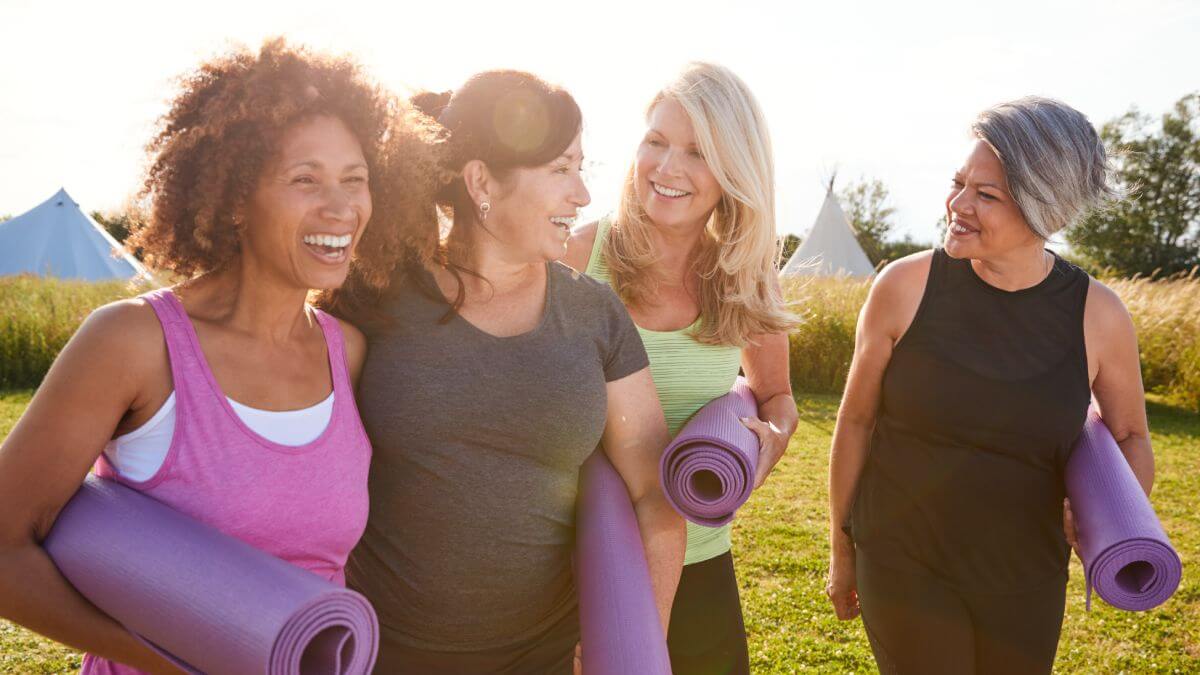Why is it that some 75-year-olds think and function like 30-year-olds, yet others struggle with their health and cognition?
According to the World Health Organization (WHO), when it comes to health, there is no typical ‘older’ person. Biological age is only a small part of ageing and while some of the variation in older people’s health is due to their genes, most successful ageing comes down to the influence of physical and social environments, and opportunities and behaviour.
So, what can you do now to make sure you age as successfully as possible?
Anna-Louise Bouvier, physiotherapist, wellbeing commentator and founder of Physiocise, believes it is all about making little changes that add up to helping you to stay younger for longer.
Ms Bouvier says you can consider yourself as being ‘in your prime’ between the ages of 35 and 75 and what you do during this time can help keep you young well into your 70s and beyond.
Popular plans right now
Exercise
The benefits of exercise for successful ageing are immeasurable. Not only does exercise boost your brain, delay dementia and improve your immunity, but it also fights anxiety and depression.
Exercise decreases the incidence of chronic illnesses such as diabetes and cardiovascular disease and builds your musculoskeletal system, fighting the effects of arthritis, osteoporosis and poor balance.
The global initiative, Exercise is Medicine, speaks to the powerful benefits of exercise on your physical heath, your mental health and your ability to age successfully.
Sleep
Making sure you sleep well most nights of the week will help to protect you against heart disease, diabetes and obesity.
Good quality sleep has been shown to increase your lifespan, improve your memory and your mood, as well as boost your immune system, and when you wake up feeling refreshed in the morning, you are likely to cope better when faced with difficulties during the day.
Manage your stress
Skills such as mindfulness and meditation have both been proven to have significant benefits for lowering stress levels, coping with illness and decreasing anxiety and depression.
They can take time to master but with a little practice, it is likely you will find yourself feeling happier and more resilient.
Choose healthy foods
The link between healthy food and mental health is widely recognised. According to Headspace, reaching for healthy snacks and choosing nutritious foods will help you get a better night’s sleep, improve your concentration and memory and give you more energy.
Two recent studies have also found that a healthy diet can decrease symptoms that are related to depression. In 2017, seven in 10 older Australians were overweight or obese, so choosing healthy food could be a really important change to help you age successfully.
Have purpose
Volunteer, learn something new, join a book club or help care for family and friends.
Beyond Blue says that the things you believe in and value shape your sense of purpose and these can range from family, financial stability and health to laughter, generosity and respect.
Staying mentally active also helps maintain cognitive function, mental wellbeing, and promotes independence into older age.
Maintain strong social connections
Strong social support is critical for ageing successfully. Joining a group for exercise or organising a regular catch-up with like-minded people can go a long way to building social connections.
Community and social engagement is an important part of wellbeing.
Almost 50 per cent of older Australians who participate in recreational activities such as going to the movies, seeing a concert, going to the local library or visiting a museum are well on their way to ageing successfully.
If you’re feeling lonely, see if you can meet more people by joining community activities, get acquainted with your neighbours or reach out to old friends.
Ms Bouvier says that “while this can sound overwhelming, keeping it simple and making small changes makes it very manageable”.
It’s the little things
She recommends doing a few small things every day, such as going for a walk with a friend, doing a favourite stretch or calling someone for a chat. These small changes are like “making deposits into your body bank, helping you to age successfully and stay younger for longer”.
If you feel you need to make some deposits into your body bank, you might like to consider volunteering for one of the Sydney University’s research projects.
Do you feel as if you’re ageing successfully? What’s your secret? Do you exercise with a friend? Do you find it more motivating and beneficial than exercising alone? Why not share your tips in the comments section below?
Also read: What is osteoporosis and why does it matter? Can you reverse it?
Kate Roberts is an experienced physiotherapist and PhD candidate at the University of Sydney. She has a passion for helping older Australians manage their aches and pains. She is particularly interested in helping people to stay active and strong. When not working, she is kept busy with her three children, two dogs and a secret dedication to pointing her toes and leaping in her regular ballet class.

